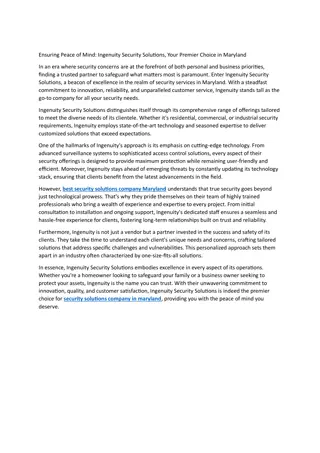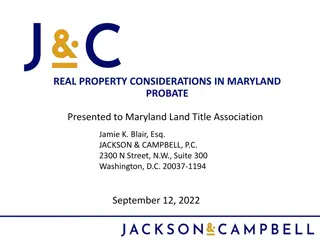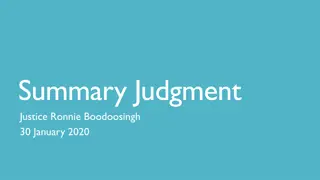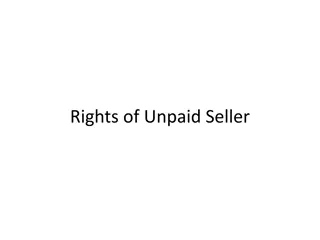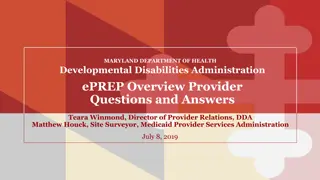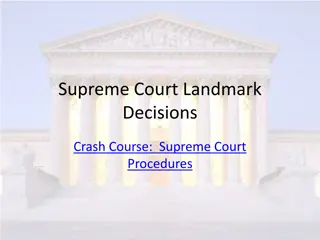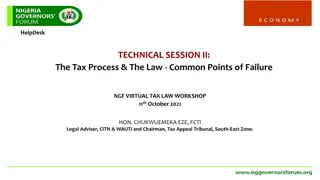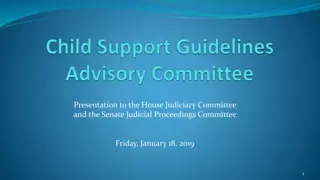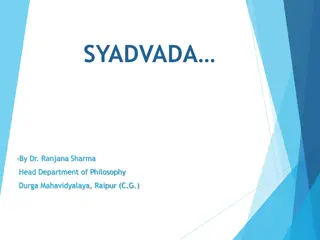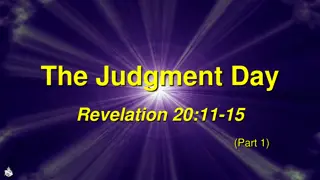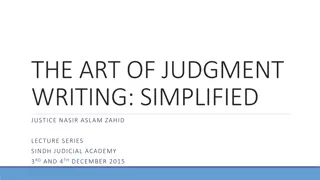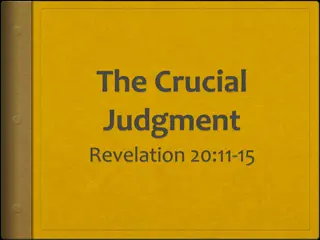Understanding Judgment Liens in Maryland: Importance of Lien Priorities
In Maryland, judgment liens automatically attach to a debtor's property for a specific duration. Understanding lien priorities is crucial, as mismanagement can lead to financial losses for lenders and title companies. Factors like divorce, death, and bankruptcy can affect lien attachments, emphasizing the need for accuracy in managing judgments.
Download Presentation

Please find below an Image/Link to download the presentation.
The content on the website is provided AS IS for your information and personal use only. It may not be sold, licensed, or shared on other websites without obtaining consent from the author. Download presentation by click this link. If you encounter any issues during the download, it is possible that the publisher has removed the file from their server.
E N D
Presentation Transcript
Judgments Reese L. Lesko, Esq. Stewart Title
Judgments in General In Maryland, a judgment lien is created automatically on any real estate owned by the debtor, that is located within the county where the judgment was entered in the Circuit Court. If the judgment was rendered in the District Court for the county, that judgment will need to be filed in the Circuit Court for that county for the judgment to attach. However, in Baltimore City, District Court judgments attach to the property without the need for any additional steps. For a debtor who owns property in another Maryland county, the creditor must file a certified copy of the judgment with the clerk for that neighboring county for that lien to attach to that property. Example: If the judgement is rendered in Montgomery County, but the debtor only owns property in Howard County, the Montgomery County judgment will then need to be filed in Howard for it to attach to the Howard County property.
Types of Judgments & Expirations Standard Creditor Judgment-A judgment lien in Maryland will remain attached to the debtor's property for 12 years. Federal Tax Lien- Federal tax liens expire 10 years and 30 days from date of assessment, unless the lien is extended. State Tax Lien- Maryland State Tax Liens now Expire 20 years from the date of assessment. Prior to this change in the law in 2019, Maryland State Tax Liens never expired. HOA/COA Lien- HOA liens expire after 12 years. However, if a deed of trust was recorded on or after October 1, 2011, and the holder forecloses, lien priority is given to any HOA or COA that holds a lien on the property for four months worth of unpaid expenses or $1,200, whichever is less.
Judgments continued.. Why do we want to get it right? Why are lien priorities so important? One of the biggest things that you want to remember about judgments is that we need to get the lien priorities right. Misreading a title search can be detrimental. If a lien has attached to a property and it goes unpaid, the judgment has the ability to take priority over a Deed of Trust. Therefore, in a foreclosure situation, the lender will need to payoff that lien in order to be able to sell the property to recoup their loss. Getting it wrong can cause a lender to file a claim on their lenders policy thus causing a loss to the title company. Furthermore, the failure to clear title of all liens could also lead to a claim on the owner's policy where again, the title company will be held responsible.
Things to think about with lien attachment Divorce- When title is held as Tenants by the Entirety and the parties get divorced, the resulting tenancy is Tenants in Common. Therefore, judgements, that may not have been able to attach, will now attach as of the date of the divorce. Death-When an owner to the property dies, tenancy will change. This means that judgments may now attach to the property, and/or an estate may need to be opened. Bankruptcy- If property is held as Joint Tenants, and one of the owners' files for Chapter 7, the JT status would be severed and Tenants in Common will result. This is because the filing of a Chapter 7 by one Joint Tenant is considered a unilateral conveyance of title to the Bankruptcy Trustee, which then severs the tenancy. Therefore, judgments that may not have been able to attach, will now be able to attach to the property.
lien attachment continued Title Transfer- Whenever an owner is being removed from the property or the tenancy is being changed, you will always need to reanalyze the title to determine if the change in ownership will affect the attachment of liens. Example: If 2 brothers are in title and the one brother wants to be removed from title, are there liens against the remaining brother that will now attach to the property? It is always important to think through what judgments could attach to the property by analyzing the ownership of the property in conjunction with the change that is being made.
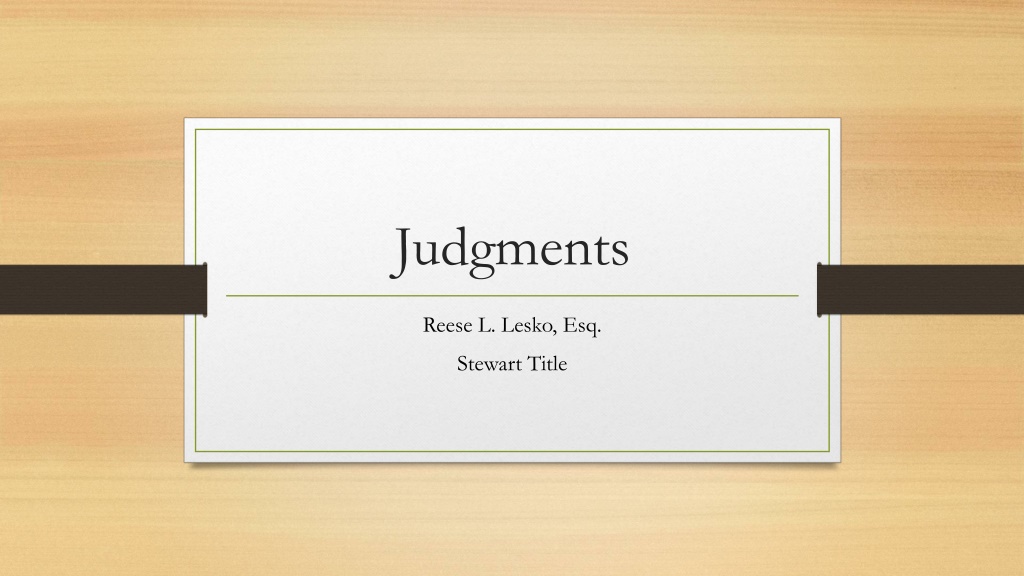
 undefined
undefined


